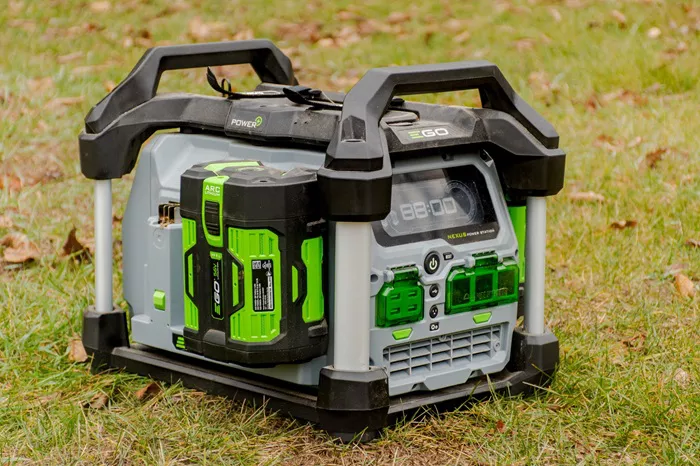Portable generators are incredibly useful tools, providing backup power during outages and serving as a power source for outdoor activities. However, the convenience of these machines comes with significant risks if not used properly. One critical question that often arises is whether portable generators can be used indoors. This article explores the various aspects of using portable generators, focusing on the potential dangers, safe practices, and alternative solutions.
Understanding Portable Generators
What is a Portable Generator?
A portable generator is a device that converts mechanical energy into electrical energy. These generators are designed to be moved easily, providing temporary power for various applications. They come in various sizes and capacities, catering to different needs, from small camping trips to powering large home appliances during outages.
How Do Portable Generators Work?
Portable generators typically run on gasoline, diesel, or propane. The engine drives a rotor, which generates electricity through electromagnetic induction. This electricity is then made available through outlets on the generator, allowing users to plug in appliances and devices.
Common Uses of Portable Generators
Portable generators are commonly used in the following scenarios:
Emergency Power: During power outages, portable generators can keep essential appliances running, such as refrigerators, lights, and medical equipment.
Outdoor Activities: Campers and RV owners use portable generators to power lights, cooking equipment, and electronic devices.
Construction Sites: Builders and contractors use portable generators to power tools and machinery where grid power is unavailable.
The Dangers of Using Portable Generators Indoors
Carbon Monoxide Poisoning
One of the most significant dangers of using portable generators indoors is carbon monoxide (CO) poisoning. CO is a colorless, odorless gas produced by burning fuel. When generators are used in enclosed spaces, CO can accumulate rapidly, leading to severe health risks and even death.
Symptoms of CO Poisoning
Headache
Dizziness
Nausea
Shortness of breath
Confusion
Loss of consciousness
Fire Hazards
Portable generators can become fire hazards if not used properly. Overloading the generator, improper fuel storage, and inadequate ventilation can all lead to fires. Fuel spills and leaks pose additional risks.
Electrical Hazards
Improper use of portable generators can lead to electrical hazards, including:
Electrocution: Using generators in wet conditions or without proper grounding can result in electrocution.
Backfeeding: Connecting a generator directly to a home’s wiring without a transfer switch can cause backfeeding, which can be deadly for utility workers and damage the electrical system.
Safety Guidelines for Portable Generator Use
Always Use Generators Outdoors
To avoid the risks associated with carbon monoxide poisoning, portable generators should always be used outdoors, at least 20 feet away from windows, doors, and vents. Never operate a generator in an enclosed or partially enclosed space, such as a garage or basement.
Ensure Proper Ventilation
Adequate ventilation is crucial to disperse exhaust fumes safely. Position the generator in an open area with plenty of airflow to prevent CO buildup.
Use Carbon Monoxide Detectors
Install battery-operated CO detectors in your home, especially near sleeping areas. These detectors can alert you to dangerous levels of CO, providing an early warning to evacuate and seek fresh air.
Proper Fuel Storage and Handling
Store fuel in approved containers and keep it away from living areas. Always refuel the generator when it is turned off and cooled down to prevent accidental fires.
Follow the Manufacturer’s Instructions
Always read and follow the manufacturer’s instructions for operating and maintaining your portable generator. Regular maintenance ensures the generator runs efficiently and safely.
Alternatives to Using Portable Generators Indoors
Battery Backup Systems
Battery backup systems are a safer alternative to portable generators for indoor use. These systems store electricity from the grid or solar panels and provide power during outages without the risks associated with fuel-burning generators.
Inverter Generators
Inverter generators are more efficient and produce cleaner power than conventional portable generators. They are quieter and safer for use in recreational vehicles and outdoor settings but should still not be used indoors.
Solar Generators
Solar generators harness energy from the sun and convert it into electricity. They are environmentally friendly, quiet, and safe for indoor use, making them an excellent alternative to traditional portable generators.
see also: Is It Safe To Run A TV On A Portable Generator?
Conclusion
While portable generators are invaluable tools for providing temporary power, they pose significant risks when used indoors. The dangers of carbon monoxide poisoning, fire hazards, and electrical accidents make indoor use a serious health and safety concern. By following safety guidelines and considering alternative power solutions, you can ensure that you and your family stay safe while enjoying the benefits of portable power. Always prioritize safety and never compromise when it comes to the proper use of portable generators.
Related topics:
- 14 Places You Should Never Place Your Portable Generator
- Understanding The Biggest Risks Of Portable Generators
- The Reliability And Value Of Chinese Generators: Are They Good?

